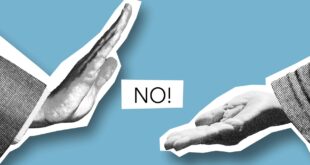Recruiters must realize that (unlike in the past, when the “pool” of unemployed people contained some top performers) the current group of unemployed people is short on top talent. Currently the only remaining viable option is to source, raid, or poach top talent from other firms. Unfortunately most recruiting tools were developed to attract unemployed people that were actively looking for jobs. If you expect to be a successful “poacher,” you’ll need new tools. The following is a list of some of the poaching tools you might want to try. GENERAL “POACHING” TOOLS – IDENTIFYING WHO TO POACH
- Ask new hires on the first day “who else is looking/ or is good” at their previous firm.
- Ask interviewees who else is just as good or better than them. Offer to hire them as a team.
- Hire away the competitor’s best recruiter (to lessen their impact and to get their “target lists”) and ask them for targets.
- Use employee referral programs as an effective tool because our employees tend to have extensive networks of friends in similar jobs at other firms.
- Follow up on your “offer turndowns” from recent years to see if they are still interested.
- Ask sales people that call on your firm who else is really good at their firm.
- Identify and track effective service people that fix products used by your firm.
- Look at rehiring top performers that left your firm (Boomerangs).
- When benchmarking best practices at other firms identify top talent.
- Capture the names of people that buy and comment favorably on your products, services, or employees.
- Hire private detectives to identify who is looking for employment at the and competitor’s firms.
- Capture the names of references given by people that apply for jobs at your firm.WHICH FIRMS TO TARGET?
- Hang out with a banner and recruit in the parking lot/ across the street from a firm after bad news about the company is announced.
- Identify firms that have announced recent layoffs, mergers, plant closings and product failures.
- Target teams that recently completed major projects.GET FRIENDS/MENTORS TO HELP IDENTIFY WHICH WORKERS TO TARGET
- Court/hire their mentors, professional friends, and team members and woo them to follow.
- Reward managers that successfully poach workers.
- Ask internal managers who they informally mentor outside the firm and target the best.
- Develop a mentor program for those outside the firm and use it to woo them to your firm.
- Get ex-employees to act as a key referral source (friends of XYZ company).
- Offer referral bonuses to “non-employees.”
- Offer prizes and rewards to people that are willing to submit an application or come by and participate in an informal interview.EVENT / PLACE RELATED TOOLS FOR POACHING
- Target “user” groups of your products (IT associations).
- Offer public technical seminars and invite key talent to attend/speak.
- Use trade shows to learn who are the best in the industry and to find out about competitors.
- Buy mailing lists of conference attendees and contact them by calling, mail, or e-mail.
- Speak at events and identify those with great question.
- Give your employees who attend conferences “take a new friend to lunch” coupons for use at conferences.
- Encourage employees to gather names at airport lounges, rental car busses, shared transportation, and on airplanes.
- Go to the restaurant across the street from your targeted firm “the XXX hangout” and offer the manager a deal where you will pay for a free dinner for two “if you put your card in the bowl” give away promotion if he/she will let you have the business cards from the target firm after it’s over.
- Hold an on-site professional seminar at your firm and assess the attendees.
- Visit their cafeteria and “across the street” lunch places to get “known” and to identify the company employees that eat there.
- Reward employees for attending conferences and capturing the names of impressive people they meet.MEDIA RELATED TOOLS
- Scan company press releases and newspaper articles for the names of key contributors including those recently promoted.
- Purchase a “who’s who” industry book to help identify “suspects.”
- Scan the best journals for authors and periodically comment on what they write. Track the names of prominent people mentioned in professional articles.
- Place billboards on the commute route by your site that demonstrate what a great place it is to work and that “they would be at work now” if they worked here.
- Purchase mailing lists that fit our jobs demographics and send non-job information to build our image.
- Target the spouse with at home direct mail to get them to encourage their spouses to look at our firm.WEB TOOLS FOR POACHING
- Chat Rooms – Post a question on a listserv and in chat rooms and target those that give great answers.
- Internet directories and search engines that help identify “white page web sites” to find addressees of the names you have identified.
- Portal banner ads for your firm’s product and learning sites.
- Use web “cookies” to identify visitors from targeted firms to your web site (general and jobs site).
- Use resume robots/spiders to look for names and personal web sites. Assess and comment on their personal web pages.
- Search company web pages for officer names, contact names or organizational carts.
- Develop or sponsor a web site that gets passives to answer the “I’ve always wanted to” question in order to capture names and aspirations.
- Identify and target people that use Usenet groups.
- Post technical articles and accomplishments on the web (your web page) to show the quality of your talent and capture the names of people that comment.
- Utilize name finder web sites. Capture the names of employees that have developed patents and technology advances.
- Identify “old” (1 yr. old or more) resumes on the net (now employed people who may be ready to look again).
Note: I do not recommend the use of illegally obtained telephone directories and organizational charts. Cold calling, although not illegal, is an admission that you are not an advanced poacher!
 Dr John Sullivan Talent Management Thought Leadership
Dr John Sullivan Talent Management Thought Leadership


